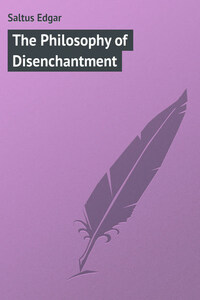It is just as well to say at the onset that the tragedy in which Tristrem Varick was the central figure has not been rightly understood. The world in which he lived, as well as the newspaper public, have had but one theory between them to account for it, and that theory is that Tristrem Varick was insane. Tristrem Varick was not insane. He had, perhaps, a fibre more or a fibre less than the ordinary run of men; that something, in fact, which is the prime factor of individuality and differentiates the possessor from the herd; but to call him insane is nonsense. If he were, it is a pity that there are not more lunatics like him.
It may be that the course of conduct which he pursued in regard to his father's estate served as basis to the theory alluded to. At the time being, it created quite a little stir; it was looked upon as a piece of old-world folly, an eccentricity worthy of the red-heeled days of seigneurial France, and, as such, altogether out of place in a money-getting age like our own. But it was not until after the tragedy that his behavior in that particular was brought up in evidence against him.
The facts in the case were these: Tristrem's father, Erastus Varick, was a man of large wealth, who, when well on in the forties, married a girl young enough to be his daughter. The lady in question was the only child of a neighbor, Mr. Dirck Van Norden by name, and very pretty is she said to have been. Before the wedding Erastus Varick had his house, which was situated in Waverley Place, refurbished from cellar to garret; he had the parlor – there were parlors in those days – fitted up in white and gold, in the style known as that of the First Empire. The old Dutch furniture, black with age and hair-cloth, was banished. The walls were plastered with a lime cement of peculiar brilliance. The floors of the bedrooms were carpeted with rugs that extended under the beds, a novelty in New York, and the bedsteads themselves, which were vast enough to make coffins for ten people, were curtained with chintz patterns manufactured in Manchester to frighten children. In brief, Erastus Varick succeeded in making the house even less attractive than before, and altogether acted like a man in love.
After three years of marriage, Tristrem was born and Mrs. Varick died. The boy had the best of care and everything that money could procure. He was given that liberal education which usually unfits the recipient for making so much as his bread and butter, and at school, at college, and when he went abroad his supply of funds was of the amplest description. Shortly after his return from foreign lands Erastus Varick was gathered to his fathers. By his will he bequeathed to Tristrem a Panama hat and a bundle of letters. The rest and residue of his property he devised to the St. Nicholas Hospital. The value of that property amounted to seven million dollars.
Now Dirck Van Norden had not yet moved from the neighborhood to a better place. Tristrem was his only grandson, and when he learned of the tenor of the will, he shook his fist at himself in the looking-glass and swore, in a bountiful old-fashioned manner which was peculiar to him, that his grandson should not be divested of his rights. He set the lawyers to work, and the lawyers were not long in discovering a flaw which, through a wise provision of the legislature, rendered the will null and void. The Hospital made a bold fight. It was shown beyond peradventure that from the time of Tristrem's birth the intention of the testator – and the intention of a testator is what the court most considers – had been to leave his property to a charitable institution. It was proved that he had made other wills of a similar character, and that he had successively destroyed them as his mind changed in regard to minor details and distributions of the trust. But the wise law was there, and there too were the wise lawyers. The decision was made in accordance with the statute, and the estate reverted to Tristrem, who then succeeded in surprising New York. Of his own free will he made over the entire property to the account of the Hospital to which it had been originally devised, and it was in connection with that transfer that he was taxed with old-world folly. But the matter was misunderstood and afterward forgotten, and only raked up again when the press of two continents busied itself with his name. At that time he was in his twenty-fifth or twenty-sixth year.
He was slender, of medium height, blue of eye, and clear-featured. His hair, which was light in color, he wore brushed upward and back from the forehead. When he walked, it was with a slight stoop, which was the more noticeable in that, being nearsighted, he had a way of holding his chin out and raising his eyebrows as though he were peering at something which he could not quite discern. In his face there was a charm that grew and delighted and fastened on the beholder. At the age of twenty-six he would have been recognized by anyone who had known him as a boy. He had expanded, of course, and a stoop and dimness of vision had come with years; but in his face was the same unmistakable, almost childish, expression of sweet good-will.














